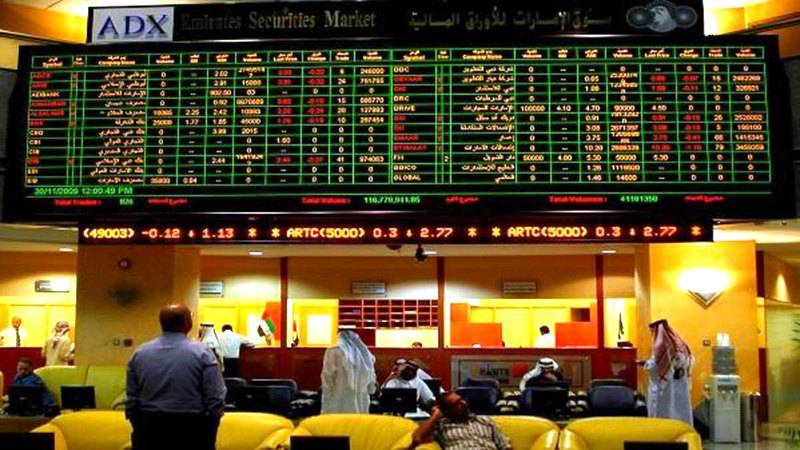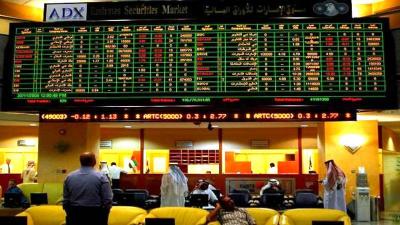The Abu Dhabi Securities Exchange is offering incentives to revive initial public offerings after a drought phase lasting about four years, contrasting with the upward trend seen in global stock markets. To achieve this goal, the Abu Dhabi Securities Exchange, owned by the emirate's new sovereign fund, "ADQ," is in talks with state-run companies and those owned by the ruling family, according to informed sources. The sources, who requested anonymity due to the sensitivity of the information, stated that the Abu Dhabi Exchange, known as (ADX), provides attractive factors for companies' listings, including flexibility in the minimum share percentage required for offering, and commitments to reduce listing fees or even waive them.
These incentives have been sufficient to generate interest in upcoming deals. Mohammed Ali Al Shorafa Al Hammadi, Chairman of the Abu Dhabi Stock Exchange, announced that the exchange may witness at least 10 new listings during 2021, which would mark an all-time annual record.
Under the microscope, as trading volumes of local stocks suffer due to falling oil prices, corporate governance in the United Arab Emirates has also come under scrutiny from investors, especially following accounting discrepancies, delisting of companies from the Dubai Financial Market, and the troubling experiences of major firms like "Arabtec Holding," which was liquidated in 2020. The Abu Dhabi Exchange has not seen any public offerings since the listing of Abu Dhabi National Oil Company's distribution arm (ADNOC Distribution) in 2017.
Mohammed Al Suwaidi, CEO of "ADQ," established in 2018, confirms that "monetizing our assets is part of our strategy. By doing so, we are opening capital markets not only to local investors but also to foreigners. Therefore, we plan to list more assets on the Abu Dhabi Exchange."
Official spokespersons for the Abu Dhabi Securities Exchange and the regulatory authority (Securities and Commodities Authority) did not respond to requests for comments on the information regarding new company listings.
### New Listings
In recent weeks, the list of companies aiming for an initial public offering in Abu Dhabi has started to take shape. The state-owned Abu Dhabi National Oil Company (ADNOC) is considering selling shares in its drilling unit. It has also initiated preparations for a potential initial public offering of a joint fertilizer project on the emirate's exchange. Similarly, "Mubadala" Investment Company (one of Abu Dhabi's sovereign funds) is nearing a sale of shares in Emirates Global Aluminium.
Meanwhile, as other companies are expected to go public, the Abu Dhabi Securities Exchange is also exploring inviting Special Purpose Acquisition Companies (SPACs) to list on the exchange after meeting certain conditions. Al Suwaidi reveals that "ADQ" is exploring other steps, such as inviting real estate investment trusts, exchange-traded funds, and bond issuers to list on the Abu Dhabi Exchange, which aims to double the market value of traded stocks to AED 750 billion (USD 204 billion) by the end of December 2020.
### The Payment Time
However, convincing local companies to list is only half the challenge. The promotional campaign for the Abu Dhabi Exchange faces skepticism from international investors, especially after losses caused by a series of delistings of public companies in the Dubai Financial Market. Such experiences may mean that some foreign investors will either shy away from local markets or demand larger discounts on prices to participate in any upcoming public offerings.
Ekaterina Ilyushchenko, Investment Director at Union Investment Private Funds based in Frankfurt, considers that "Emirati companies have 'disappeared' from the international investment map after 'misappropriating' investor funds through delistings of listed companies" combined with illegal financial practices. In view of this, we will demand a discount on the valuation of the new stocks listed on the Abu Dhabi Exchange, taking corporate governance principles into account.
Both the Abu Dhabi and Dubai exchanges are supervised by the Securities and Commodities Authority based in Abu Dhabi, for which its regulatory work has faced much criticism and been blamed for failing to improve compliance and disclosure standards among listed companies.
### Saudi Competition
As the Abu Dhabi Exchange struggles to achieve its goal of attracting new public offerings, a competing exchange, "Tadawul" in Saudi Arabia, looms on the horizon, representing an economy nearly double the size of the UAE's. It should be noted that trading volumes at the Abu Dhabi Securities Exchange remain weak compared to Riyadh, home of the largest stock market in the Middle East. However, the fundamental difference may stem from the Saudi regulatory body’s better track record in enforcing market rules. In contrast, several violations in the UAE, such as delisting companies without prior notice, have eroded investor confidence.
### Liquidity Challenge
Alongside the promotional effort, changes are afoot at the Abu Dhabi Securities Exchange. A series of technical changes are being implemented aimed at improving trading liquidity and increasing market volume. Thanks to these changes, trading volumes at the Abu Dhabi Exchange have increased since the beginning of 2021, while they have remained low in its rival, Dubai.
The value of stocks traded on the Abu Dhabi Securities Exchange from the beginning of 2021 until the end of April exceeded the total for the entire year of 2020. This surge was driven by increased trading activity in the top 6 stocks, which together account for 85% of the overall index of the Abu Dhabi Exchange.
According to Mohammed Ali Yasin, CEO of Strategy at Al Dhabi Capital, "the Abu Dhabi Securities Exchange's goal of enhancing market capitalization can only be achieved through the listing of new and larger companies." He affirms that "liquidity levels have improved significantly. This, in itself, will make the Abu Dhabi Securities Exchange more attractive for long-term investment for institutions and investors."




